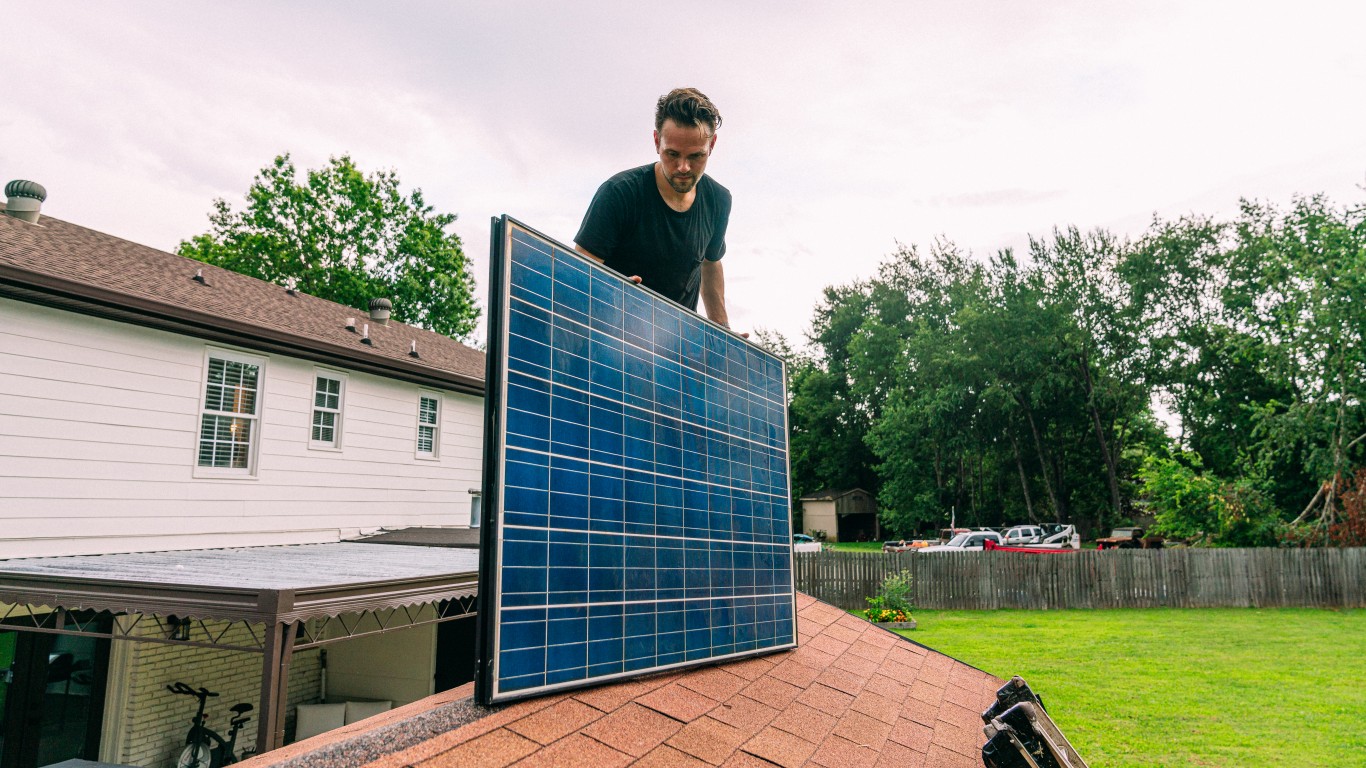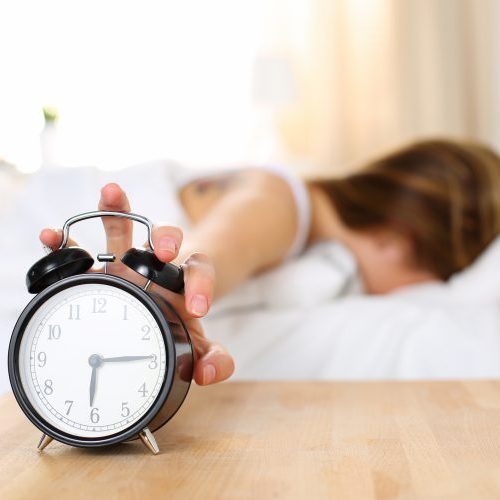
More than one in three adults in America are getting less sleep than they need. While insufficient sleep is often considered normal, it can have dramatic effects on a population’s health and productivity. According to research funded by the National Institutes of Health, sleep deprivation in America is a largely unaddressed and growing public health problem.
After only one night with too little sleep, a person’s cognitive abilities are dramatically diminished. After a single night of less than six hours of sleep, the risk of a car accident doubles for drivers, according to the American Automobile Association. Further, driving with less than five hours of sleep is just as dangerous as driving at or slightly above the legal alcohol limit. Many workplace accidents are also caused by sleep deprived employees. Several massive incidents such as the Challenger explosion, the near meltdown at Three Mile Island, and the Chernobyl disaster have all been tied to sleep deprivation among workers.
Sleeping habits vary considerably across country. With data from the Centers for Disease Control and Prevention, 24/7 Wall St. reviewed the share of adults in every state who sleep less than seven hours per night. Hawaii residents get the least sleep with 43.9% of adults averaging less than seven hours each night. By contrast, only 28.4% of adults in South Dakota get insufficient sleep, the lowest share of any state.
Click here to see the states getting the most (and least) sleep.
Stress is among the leading causes of not getting enough sleep. Based on a CDC survey asking Americans to report mental well-being, 11.2% of adults experience frequent mental distress — defined as poor mental health during at least 15 days out of the previous 30. In states where residents report getting the most sleep, this percentage tends to be lower. All the 10 states where residents report the best sleeping habits have a lower share of adults with continual stress than the nation as a whole.
Low levels of income and education increase the likelihood of a population not getting enough sleep. This is likely caused by residents working longer hours at lower paying jobs and the higher level of stress from financial insecurity. Nationwide, 30.1% of adults with an annual salary over $75,000 report regular insufficient sleep. However, among those earning less than $25,000 annually, 42.2% get too little sleep. In addition, while over 40% of adults without a high school diploma report insufficient sleep, approximately 28% of those with a college degree do.
Nationwide, 14.7% of the population lives in poverty. While the poverty rate is higher in only one of the 10 states where residents get the most sleep, it is higher in seven of the 10 states where residents report getting the least sleep.
Sleeping less than seven hours per night is associated with a range of adverse health effects, including increased risk of obesity, diabetes, high blood pressure, coronary heart disease, stroke, and frequent mental distress.
Insufficient sleep, through the associated adverse health outcomes, can raise the likelihood of premature death across an entire population. Only three of the 10 states getting the least sleep have a life expectancy above the nation’s average, while eight of the 10 states sleeping the most have a longer life expectancy than the nationwide average. Those who sleep five hours or less per night have a 15% higher risk of death from all causes than those who sleep seven hours each night — according to recent research reviewed by Harvard Medical School.
To determine the states where residents report getting the most and least sleep, 24/7 Wall St. reviewed the share of adults in every state who get less than seven hours of sleep. These figures were obtained from the Centers for Disease Control and Prevention’s 2014 Behavioral Risk Factor Surveillance System (BRFSS). The share of adults in each state reporting frequent mental distress was compiled by County Health Rankings & Roadmaps, a Robert Wood Johnson Foundation and University of Wisconsin Population Health Institute joint program using 2014 CDC data. The share of adults with high blood pressure was compiled by the United Health Foundation using 2015 CDC data from the BRFSS. Poverty Rates are from the U.S. Census Bureau’s 2015 American Community Survey.
These are the states getting the most (and least) sleep.
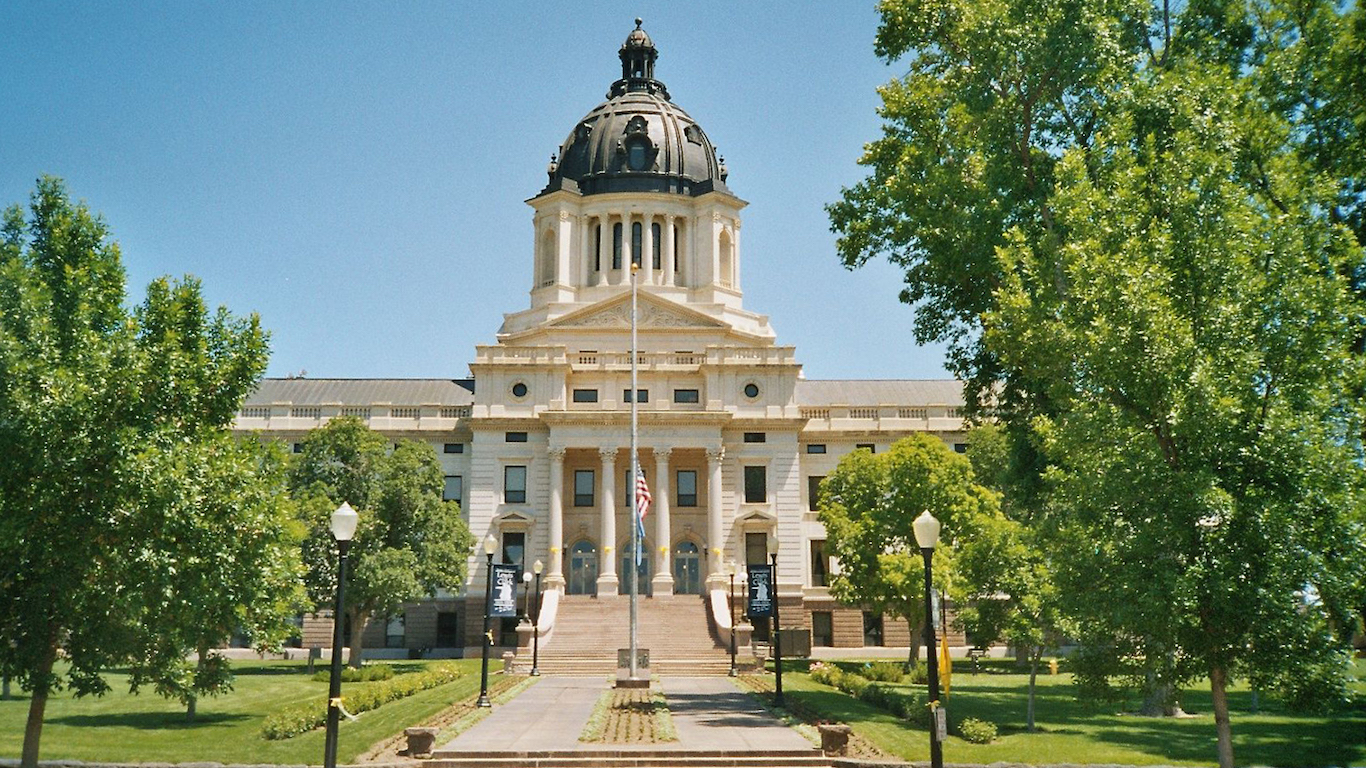
50. South Dakota
> Adults reporting insufficient sleep (< 7 hrs.): 28.4%
> Adults w/ frequent mental distress: 7.1% (the lowest)
> Adults w/ high blood pressure: 29.9% (15th lowest)
> Poverty rate: 13.7% (24th lowest)
[in-text-ad]

49. Colorado
> Adults reporting insufficient sleep (< 7 hrs.): 28.5%
> Adults w/ frequent mental distress: 10.4% (13th lowest)
> Adults w/ high blood pressure: 25.7% (2nd lowest)
> Poverty rate: 11.5% (13th lowest)
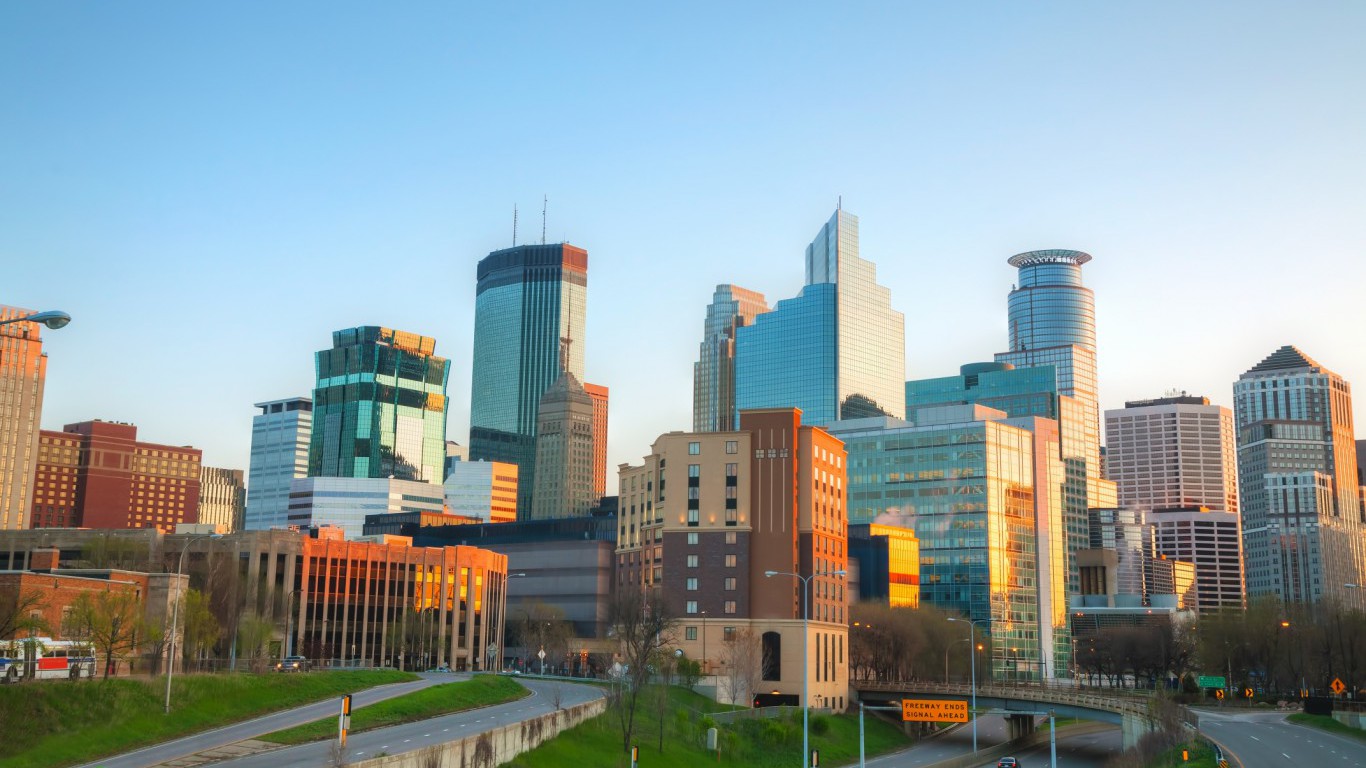
48. Minnesota
> Adults reporting insufficient sleep (< 7 hrs.): 29.2%
> Adults w/ frequent mental distress: 8.7% (2nd lowest)
> Adults w/ high blood pressure: 26.3% (3rd lowest)
> Poverty rate: 10.2% (3rd lowest)
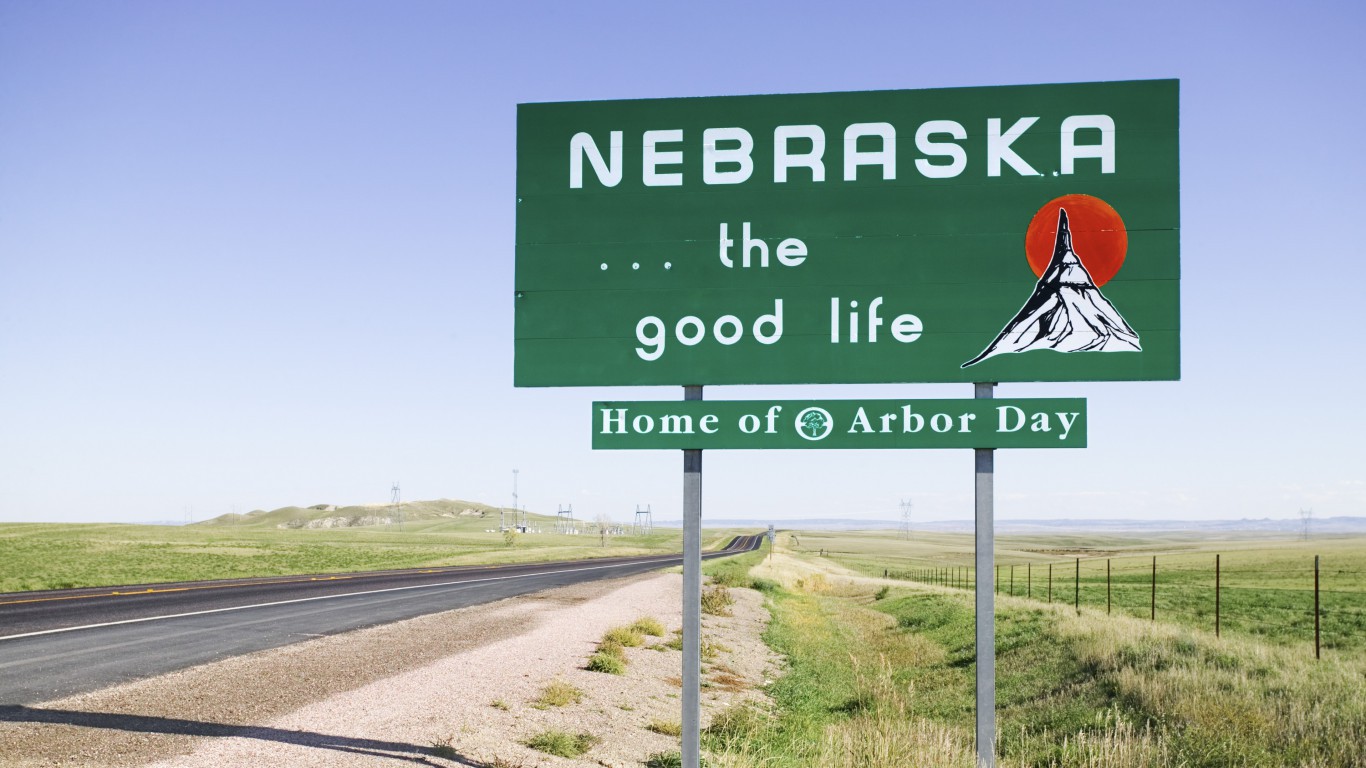
47. Nebraska
> Adults reporting insufficient sleep (< 7 hrs.): 30.4%
> Adults w/ frequent mental distress: 8.9% (4th lowest)
> Adults w/ high blood pressure: 29.9% (15th lowest)
> Poverty rate: 12.6% (19th lowest)
[in-text-ad-2]

46. Idaho
> Adults reporting insufficient sleep (< 7 hrs.): 30.6%
> Adults w/ frequent mental distress: 10.3% (11th lowest)
> Adults w/ high blood pressure: 31.2% (25th highest)
> Poverty rate: 15.1% (20th highest)
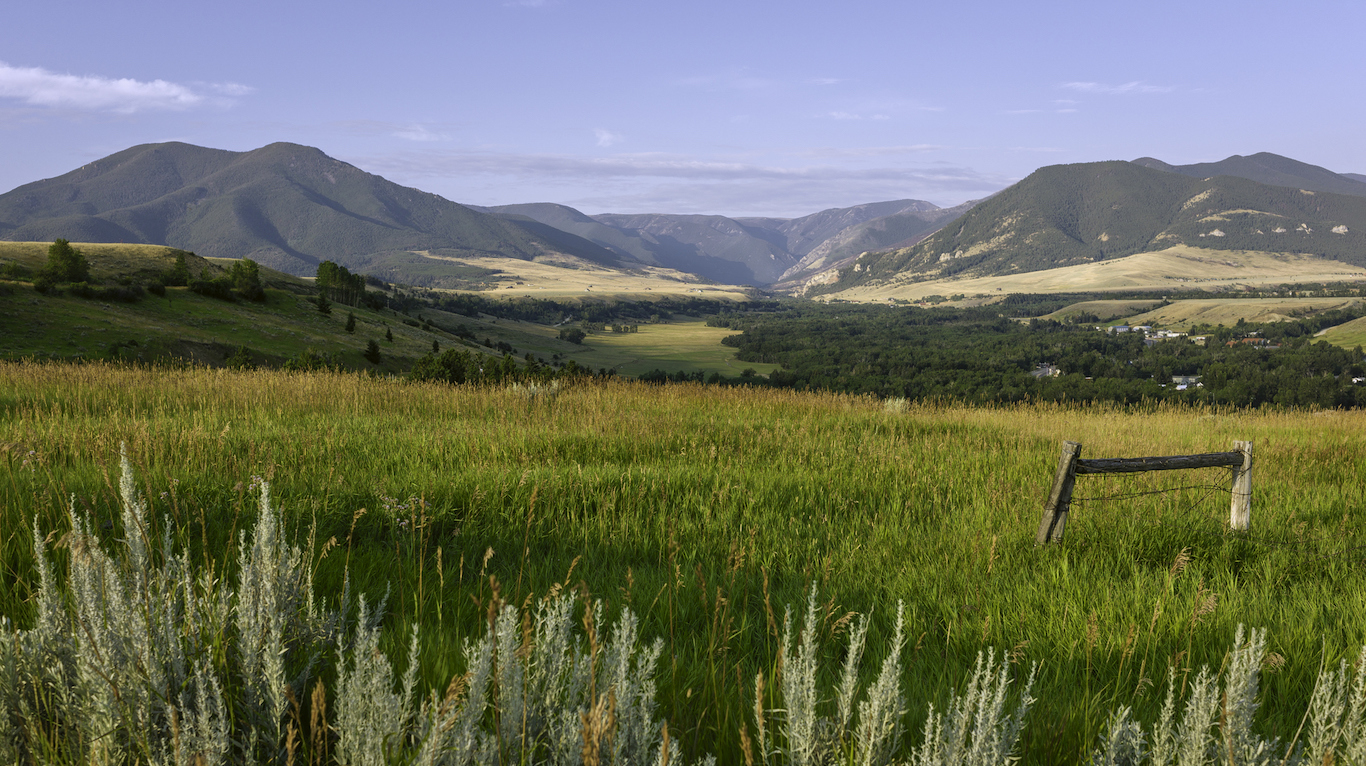
45. Montana
> Adults reporting insufficient sleep (< 7 hrs.): 30.7%
> Adults w/ frequent mental distress: 10.6% (15th lowest)
> Adults w/ high blood pressure: 29.1% (7th lowest)
> Poverty rate: 14.6% (24th highest)
[in-text-ad]

44. Utah
> Adults reporting insufficient sleep (< 7 hrs.): 30.8%
> Adults w/ frequent mental distress: 10.6% (15th lowest)
> Adults w/ high blood pressure: 23.6% (the lowest)
> Poverty rate: 11.3% (12th lowest)
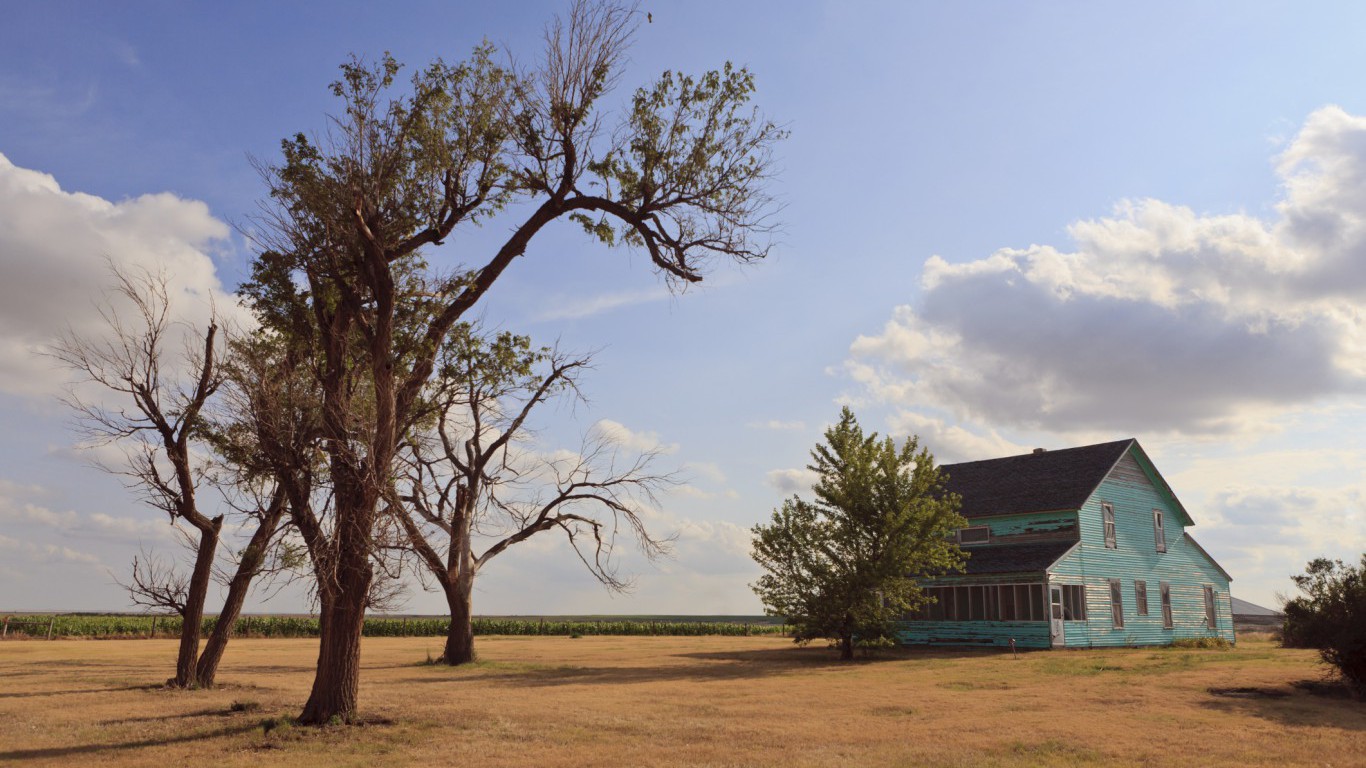
43. Kansas
> Adults reporting insufficient sleep (< 7 hrs.): 30.9%
> Adults w/ frequent mental distress: 9.7% (7th lowest)
> Adults w/ high blood pressure: 31.6% (24th highest)
> Poverty rate: 13.0% (20th lowest)
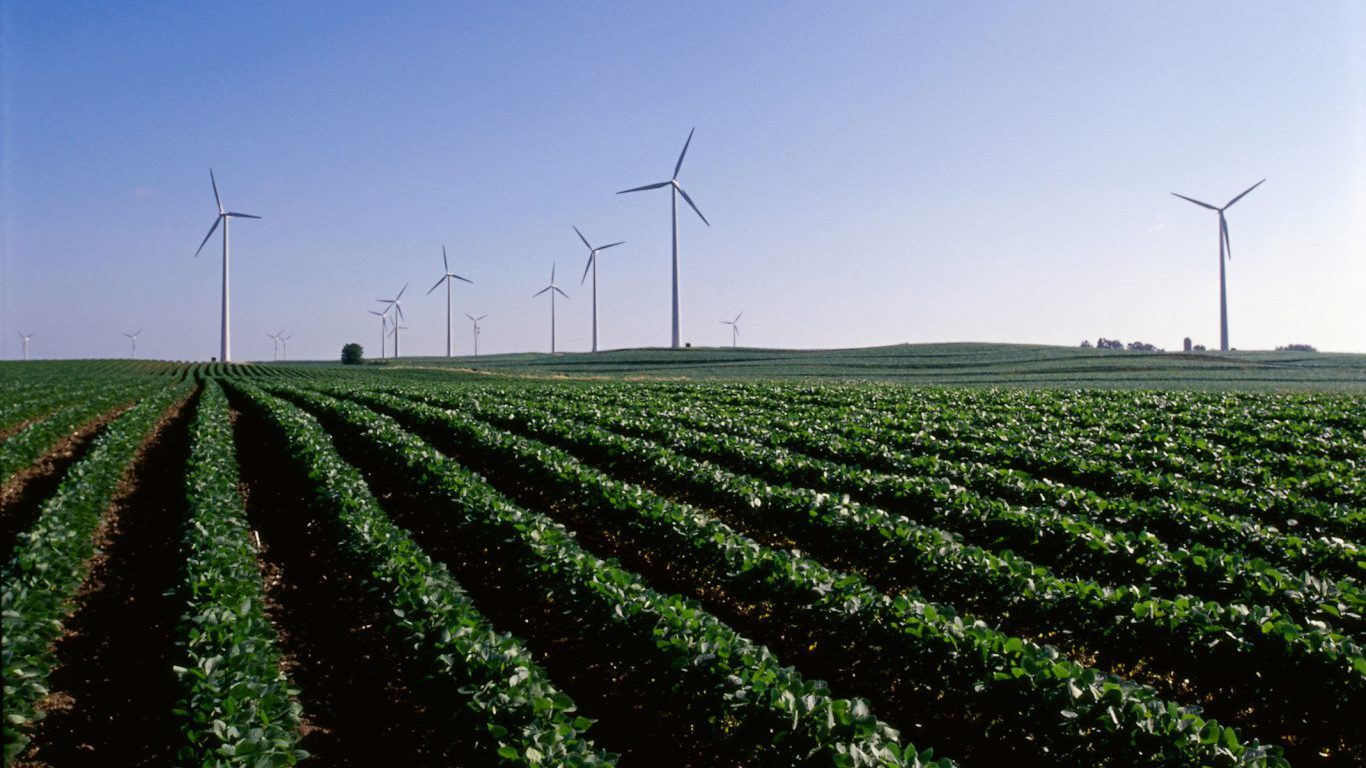
42. Iowa
> Adults reporting insufficient sleep (< 7 hrs.): 31.0%
> Adults w/ frequent mental distress: 9.5% (6th lowest)
> Adults w/ high blood pressure: 30.6% (22nd lowest)
> Poverty rate: 12.2% (16th lowest)
[in-text-ad-2]

41. Vermont
> Adults reporting insufficient sleep (< 7 hrs.): 31.0%
> Adults w/ frequent mental distress: 10.6% (15th lowest)
> Adults w/ high blood pressure: 29.4% (10th lowest)
> Poverty rate: 10.2% (3rd lowest)
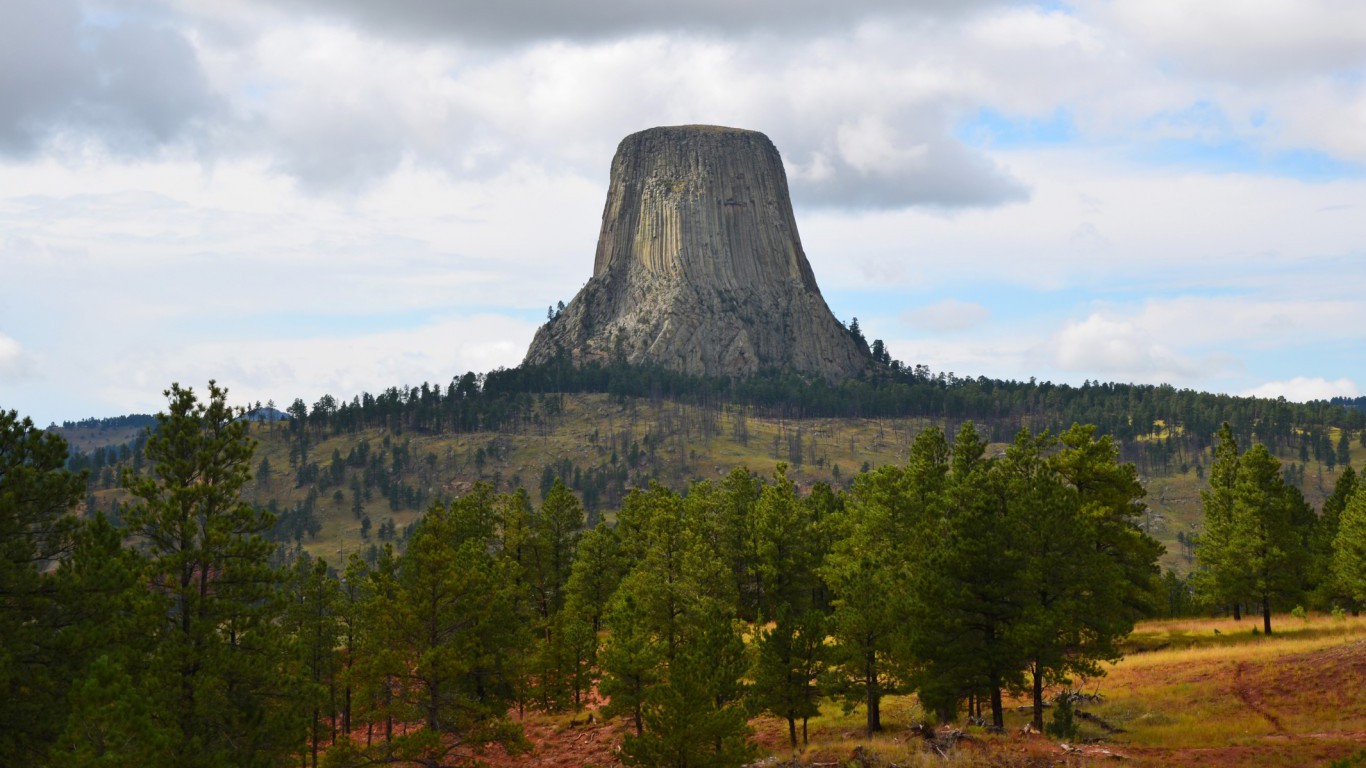
40. Wyoming
> Adults reporting insufficient sleep (< 7 hrs.): 31.3%
> Adults w/ frequent mental distress: 11.6% (20th highest)
> Adults w/ high blood pressure: 29.9% (15th lowest)
> Poverty rate: 11.1% (10th lowest)
[in-text-ad]

39. Oregon
> Adults reporting insufficient sleep (< 7 hrs.): 31.7%
> Adults w/ frequent mental distress: 13.6% (9th highest)
> Adults w/ high blood pressure: 30.1% (19th lowest)
> Poverty rate: 15.4% (18th highest)
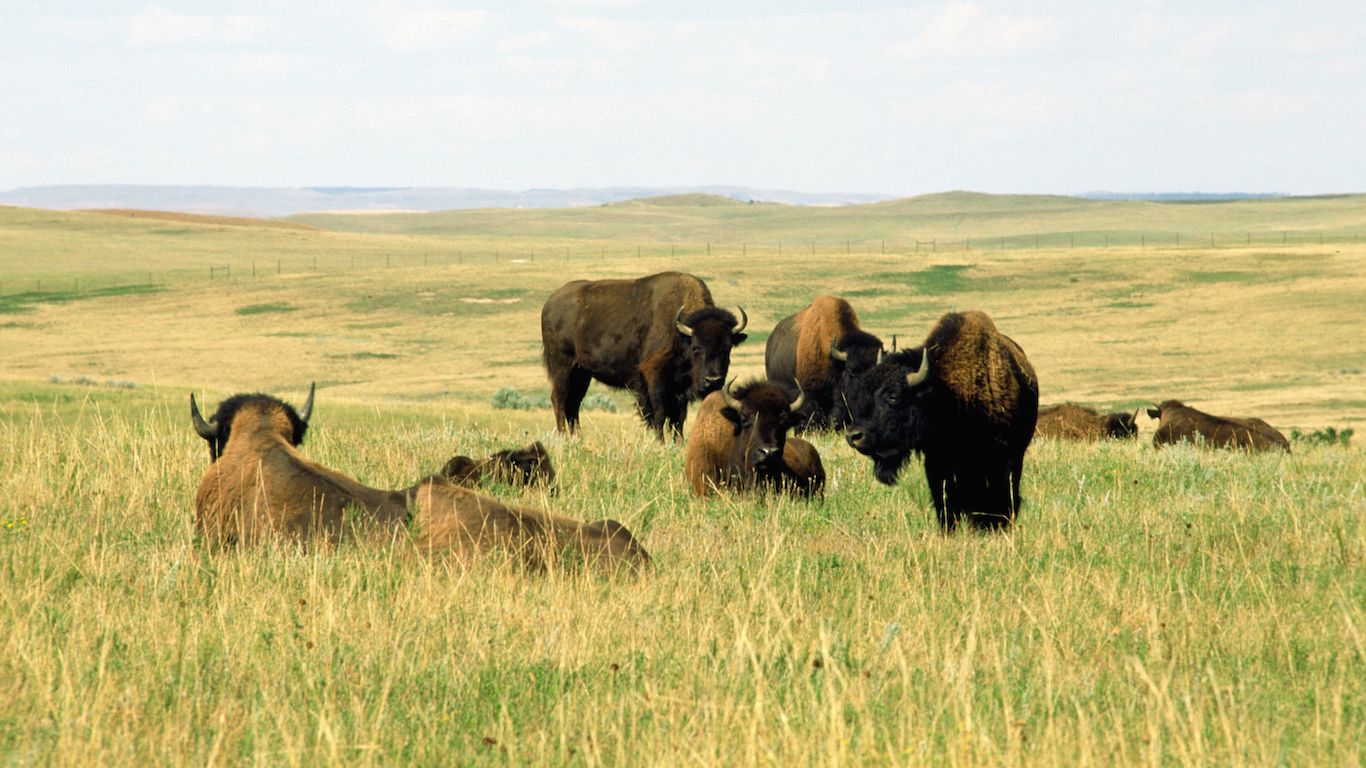
38. North Dakota
> Adults reporting insufficient sleep (< 7 hrs.): 31.8%
> Adults w/ frequent mental distress: 9.2% (5th lowest)
> Adults w/ high blood pressure: 30.4% (20th lowest)
> Poverty rate: 11.0% (9th lowest)
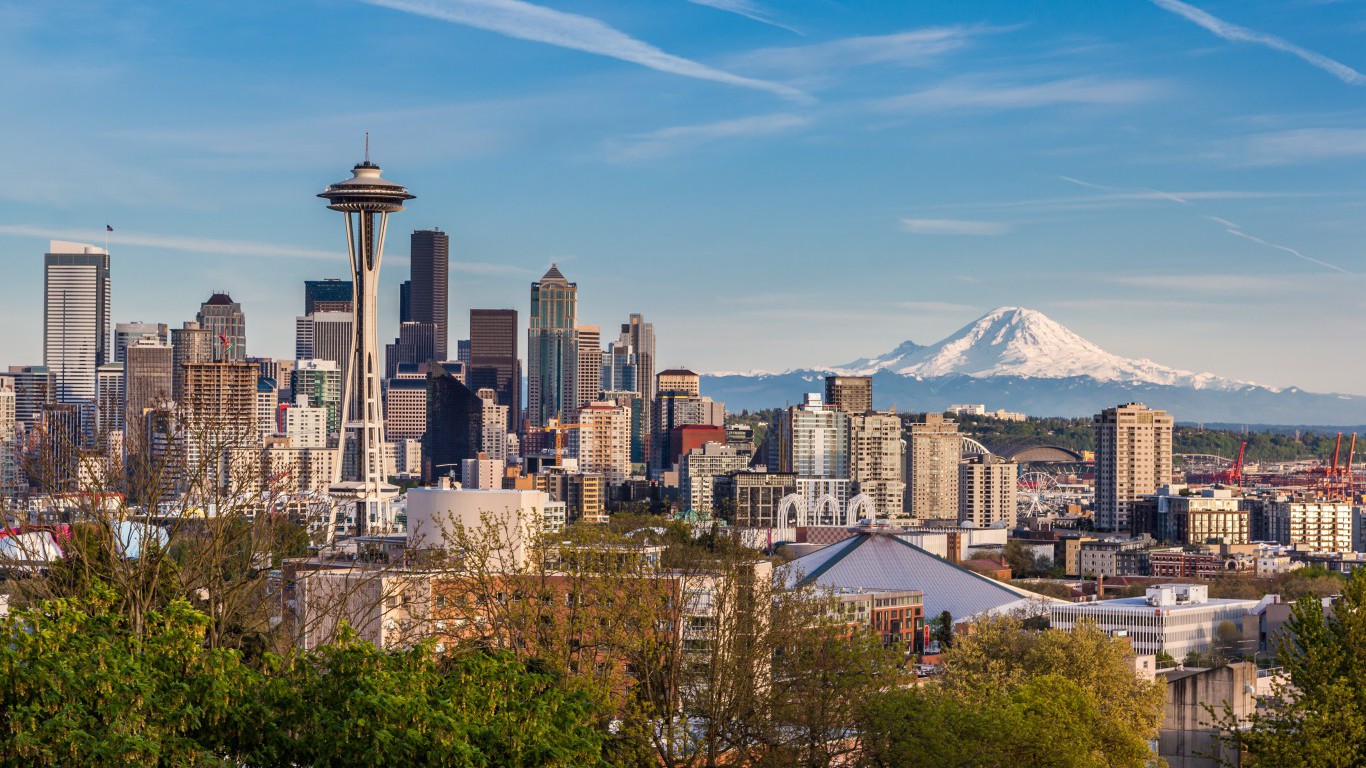
37. Washington
> Adults reporting insufficient sleep (< 7 hrs.): 31.8%
> Adults w/ frequent mental distress: 11.2% (24th lowest)
> Adults w/ high blood pressure: 29.7% (14th lowest)
> Poverty rate: 12.2% (16th lowest)
[in-text-ad-2]

36. New Mexico
> Adults reporting insufficient sleep (< 7 hrs.): 32.0%
> Adults w/ frequent mental distress: 11.3% (24th highest)
> Adults w/ high blood pressure: 30.0% (18th lowest)
> Poverty rate: 20.4% (2nd highest)
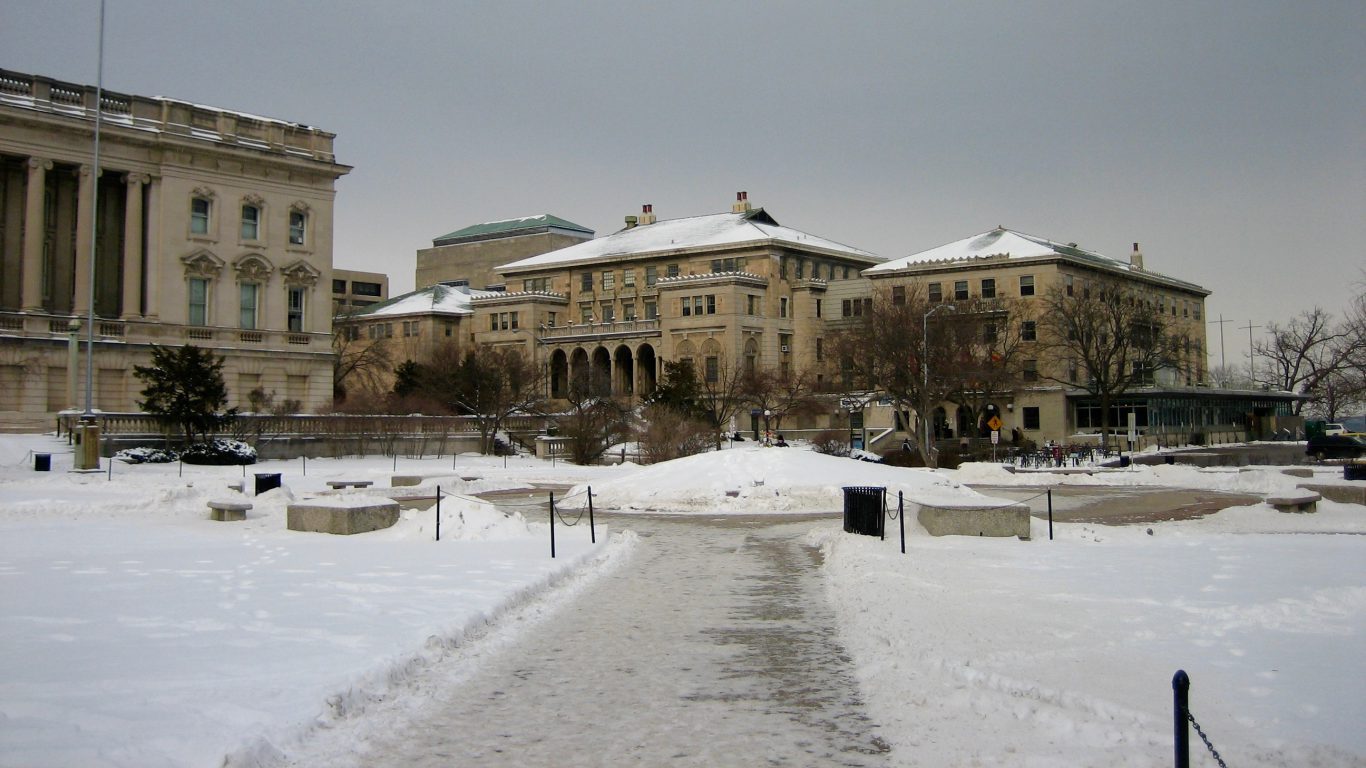
35. Wisconsin
> Adults reporting insufficient sleep (< 7 hrs.): 32.2%
> Adults w/ frequent mental distress: 10.0% (9th lowest)
> Adults w/ high blood pressure: 29.6% (12th lowest)
> Poverty rate: 12.1% (15th lowest)
[in-text-ad]
34. North Carolina
> Adults reporting insufficient sleep (< 7 hrs.): 32.4%
> Adults w/ frequent mental distress: 11.7% (17th highest)
> Adults w/ high blood pressure: 35.2% (11th highest)
> Poverty rate: 16.4% (12th highest)
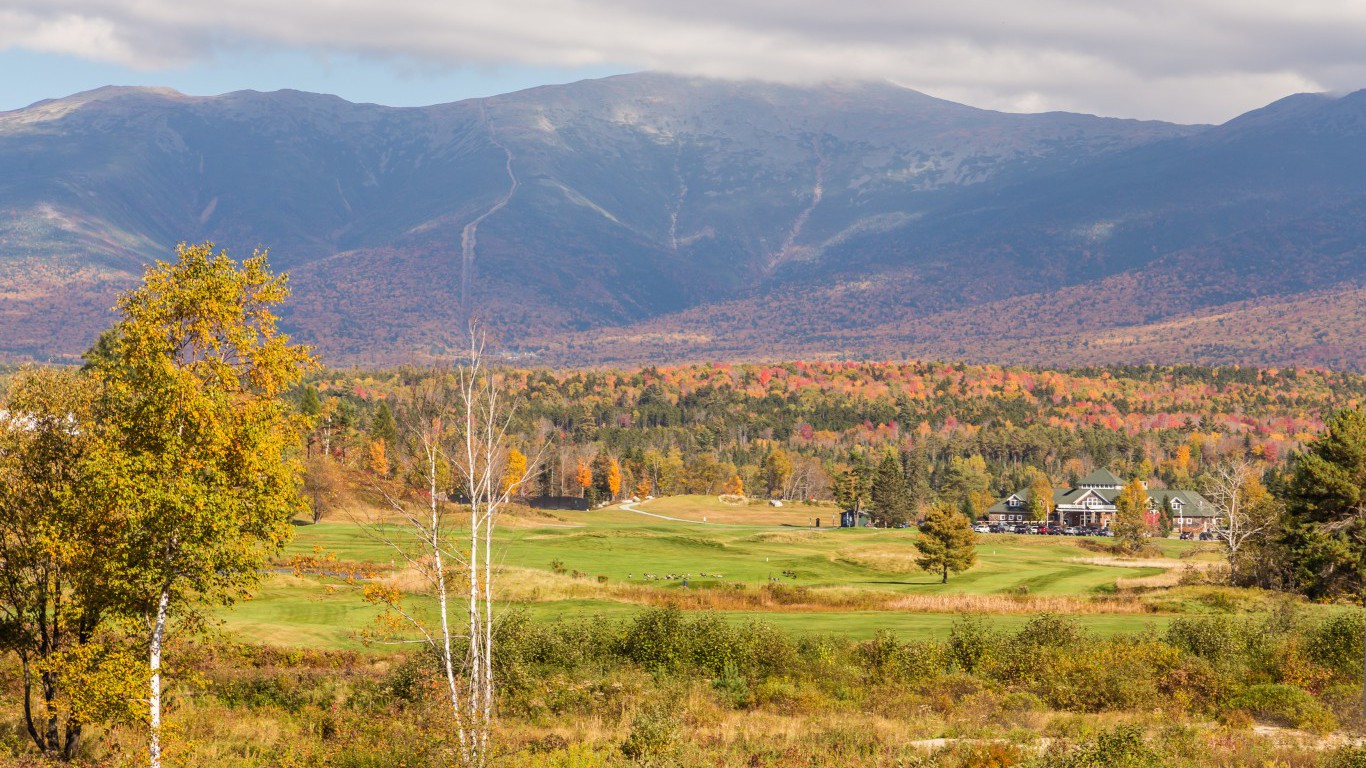
33. New Hampshire
> Adults reporting insufficient sleep (< 7 hrs.): 32.5%
> Adults w/ frequent mental distress: 10.9% (19th lowest)
> Adults w/ high blood pressure: 29.2% (8th lowest)
> Poverty rate: 8.2% (the lowest)

32. Maine
> Adults reporting insufficient sleep (< 7 hrs.): 32.9%
> Adults w/ frequent mental distress: 11.6% (20th highest)
> Adults w/ high blood pressure: 34.1% (15th highest)
> Poverty rate: 13.4% (22nd lowest)
[in-text-ad-2]
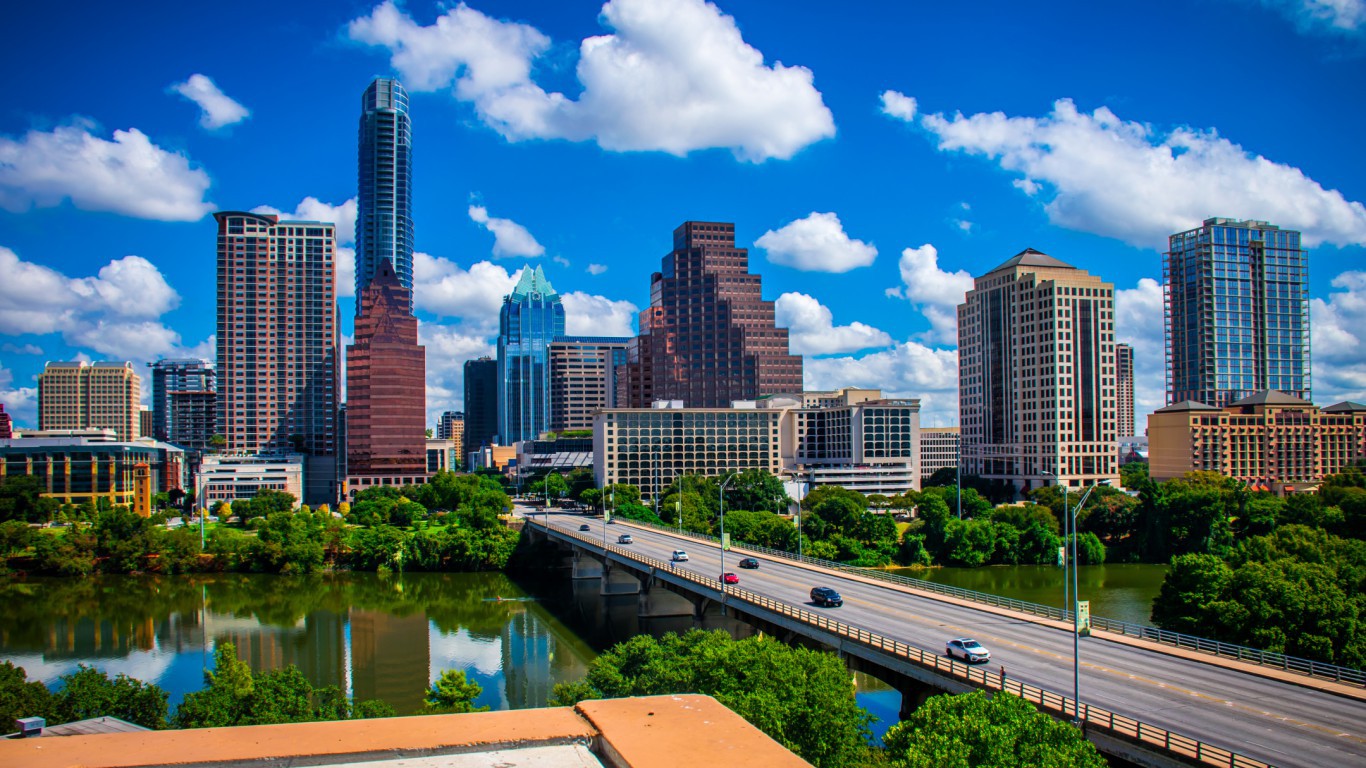
31. Texas
> Adults reporting insufficient sleep (< 7 hrs.): 33.0%
> Adults w/ frequent mental distress: 10.0% (9th lowest)
> Adults w/ high blood pressure: 29.5% (11th lowest)
> Poverty rate: 15.9% (14th highest)

30. Arizona
> Adults reporting insufficient sleep (< 7 hrs.): 33.3%
> Adults w/ frequent mental distress: 11.2% (24th lowest)
> Adults w/ high blood pressure: 30.8% (23rd lowest)
> Poverty rate: 17.4% (8th highest)
[in-text-ad]
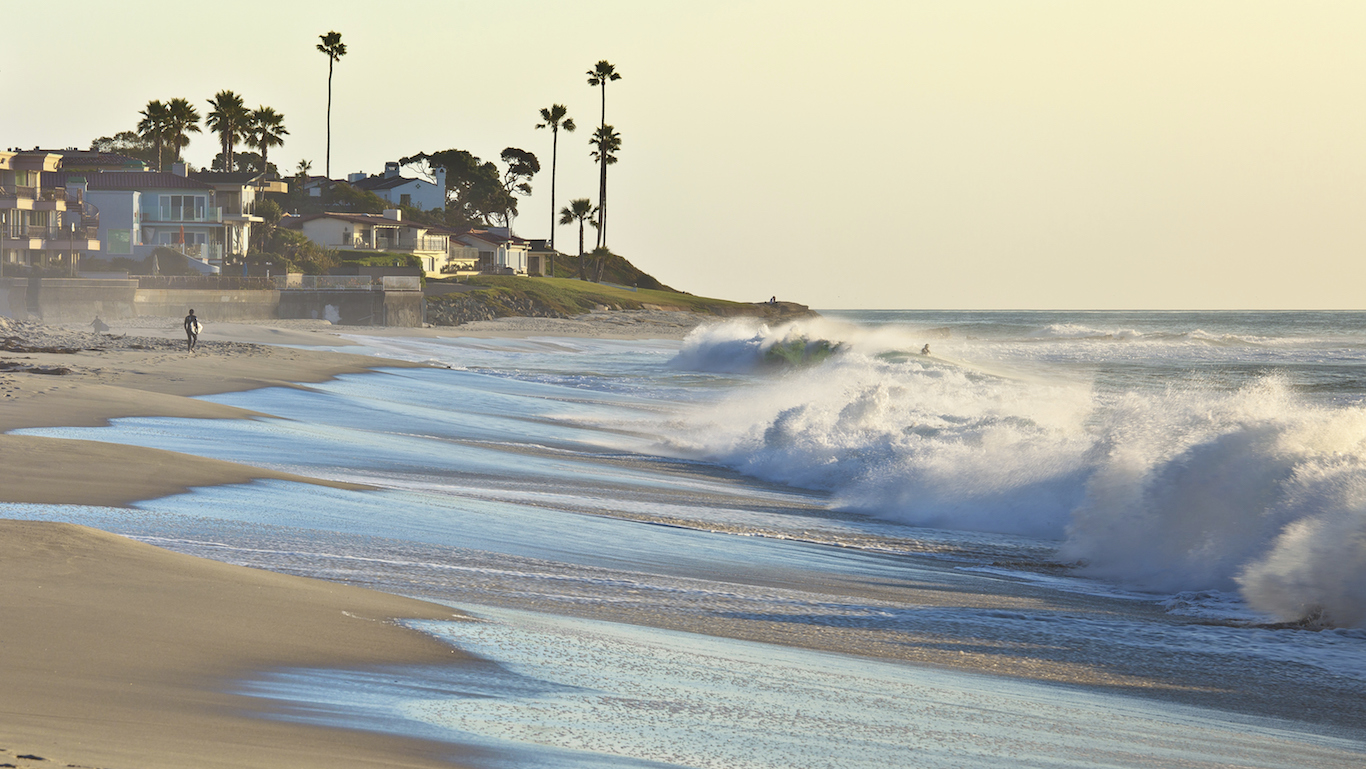
29. California
> Adults reporting insufficient sleep (< 7 hrs.): 33.6%
> Adults w/ frequent mental distress: 11.0% (20th lowest)
> Adults w/ high blood pressure: 28.5% (6th lowest)
> Poverty rate: 15.3% (19th highest)

28. Missouri
> Adults reporting insufficient sleep (< 7 hrs.): 34.0%
> Adults w/ frequent mental distress: 12.9% (12th highest)
> Adults w/ high blood pressure: 34.1% (15th highest)
> Poverty rate: 14.8% (22nd highest)
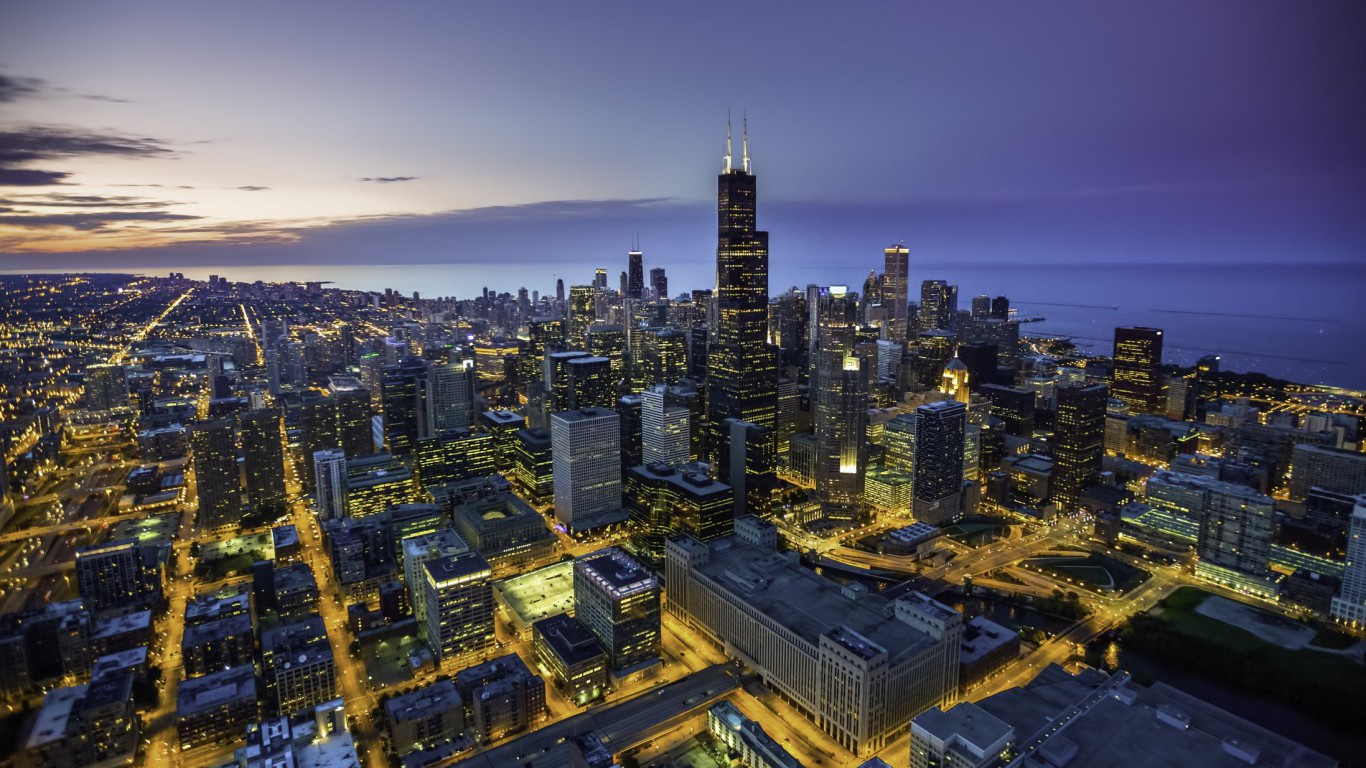
27. Illinois
> Adults reporting insufficient sleep (< 7 hrs.): 34.4%
> Adults w/ frequent mental distress: 9.7% (7th lowest)
> Adults w/ high blood pressure: 30.8% (23rd lowest)
> Poverty rate: 13.6% (23rd lowest)
[in-text-ad-2]

26. Massachusetts
> Adults reporting insufficient sleep (< 7 hrs.): 34.5%
> Adults w/ frequent mental distress: 11.6% (20th highest)
> Adults w/ high blood pressure: 29.6% (12th lowest)
> Poverty rate: 11.5% (13th lowest)

25. Alaska
> Adults reporting insufficient sleep (< 7 hrs.): 35.0%
> Adults w/ frequent mental distress: 11.0% (20th lowest)
> Adults w/ high blood pressure: 27.5% (4th lowest)
> Poverty rate: 10.3% (5th lowest)
[in-text-ad]

24. Connecticut
> Adults reporting insufficient sleep (< 7 hrs.): 35.2%
> Adults w/ frequent mental distress: 11.1% (22nd lowest)
> Adults w/ high blood pressure: 30.4% (20th lowest)
> Poverty rate: 10.5% (6th lowest)
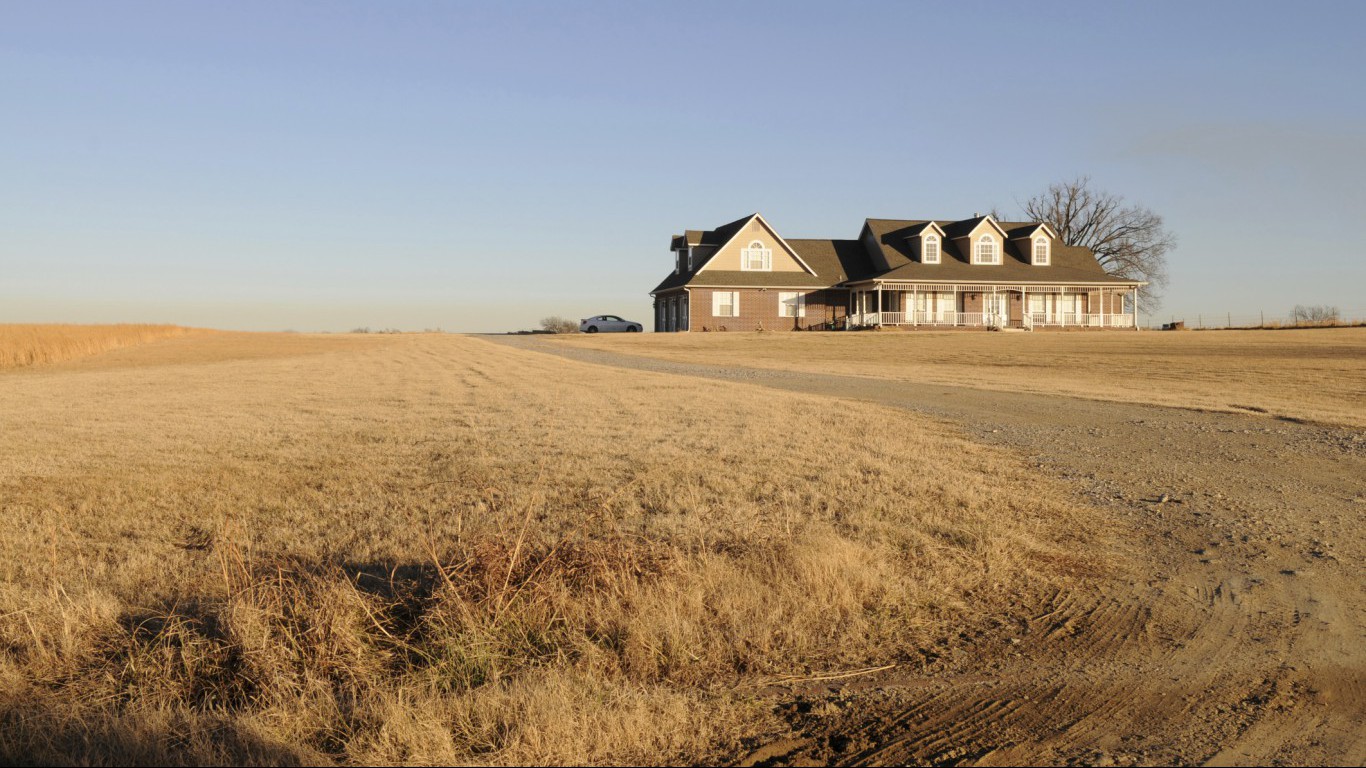
23. Oklahoma
> Adults reporting insufficient sleep (< 7 hrs.): 35.7%
> Adults w/ frequent mental distress: 13.1% (10th highest)
> Adults w/ high blood pressure: 36.2% (10th highest)
> Poverty rate: 16.1% (13th highest)
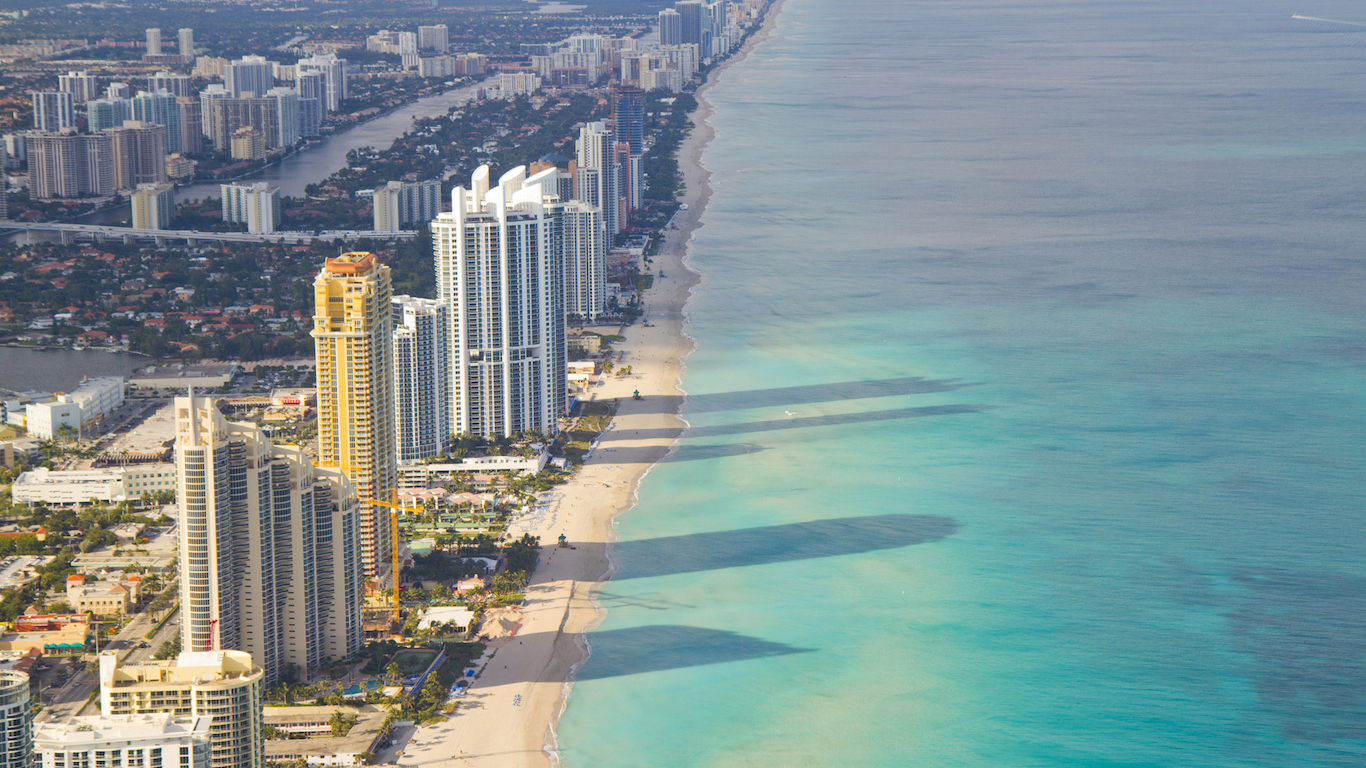
22. Florida
> Adults reporting insufficient sleep (< 7 hrs.): 35.8%
> Adults w/ frequent mental distress: 13.0% (11th highest)
> Adults w/ high blood pressure: 33.5% (16th highest)
> Poverty rate: 15.7% (16th highest)
[in-text-ad-2]

21. Virginia
> Adults reporting insufficient sleep (< 7 hrs.): 36.0%
> Adults w/ frequent mental distress: 10.3% (11th lowest)
> Adults w/ high blood pressure: 33.2% (17th highest)
> Poverty rate: 11.2% (11th lowest)

20. Nevada
> Adults reporting insufficient sleep (< 7 hrs.): 36.2%
> Adults w/ frequent mental distress: 11.5% (22nd highest)
> Adults w/ high blood pressure: 28.3% (5th lowest)
> Poverty rate: 14.7% (23rd highest)
[in-text-ad]

19. Louisiana
> Adults reporting insufficient sleep (< 7 hrs.): 36.3%
> Adults w/ frequent mental distress: 14.3% (4th highest)
> Adults w/ high blood pressure: 39.3% (5th highest)
> Poverty rate: 19.6% (3rd highest)
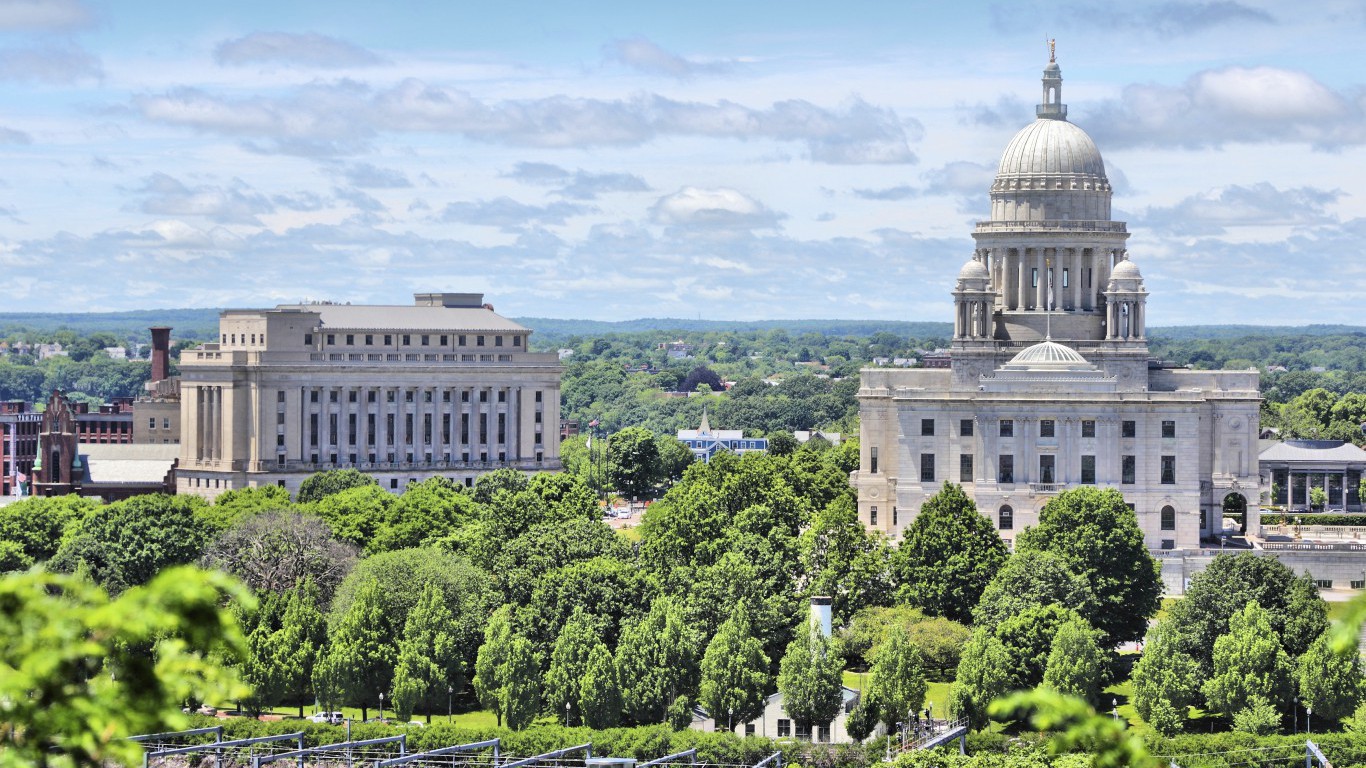
18. Rhode Island
> Adults reporting insufficient sleep (< 7 hrs.): 36.7%
> Adults w/ frequent mental distress: 12.4% (14th highest)
> Adults w/ high blood pressure: 32.4% (22nd highest)
> Poverty rate: 13.9% (25th lowest)
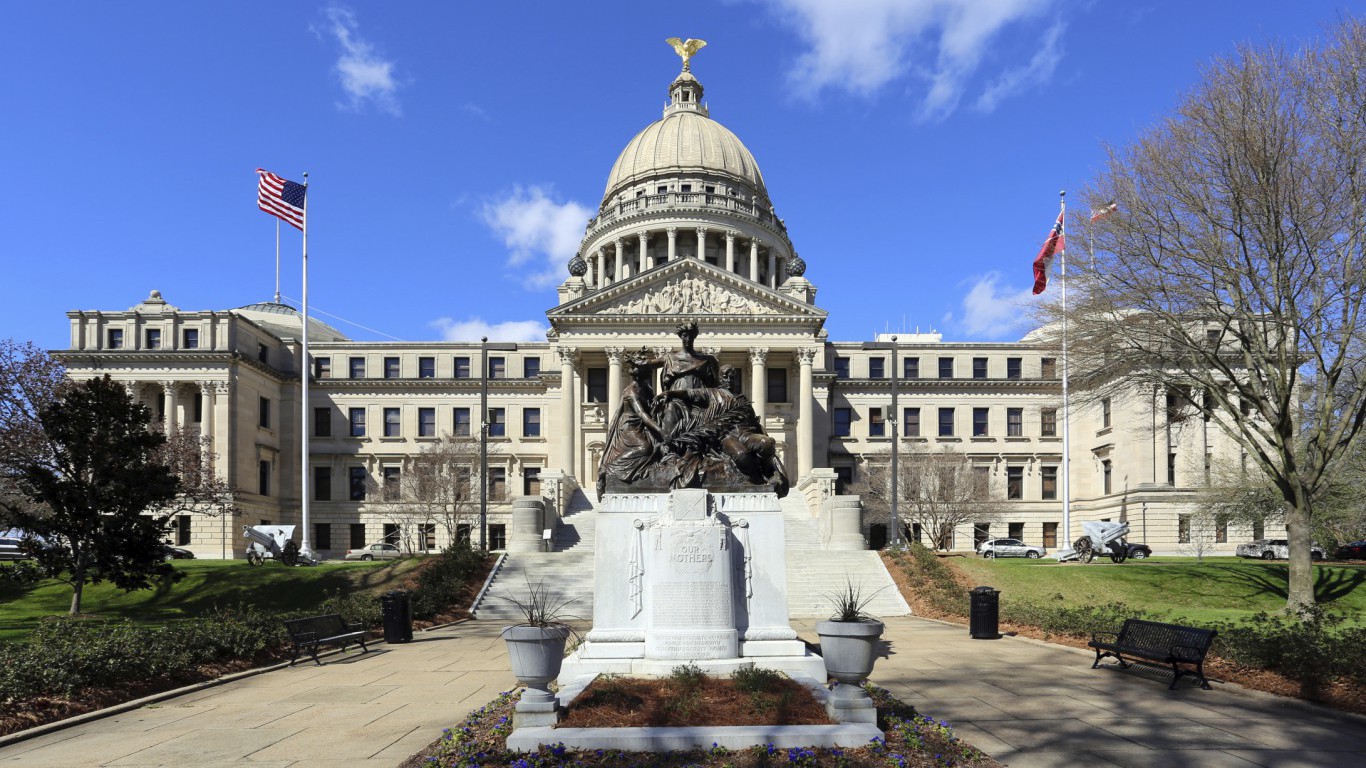
17. Mississippi
> Adults reporting insufficient sleep (< 7 hrs.): 37.0%
> Adults w/ frequent mental distress: 15.0% (2nd highest)
> Adults w/ high blood pressure: 42.4% (2nd highest)
> Poverty rate: 22.0% (the highest)
[in-text-ad-2]

16. Tennessee
> Adults reporting insufficient sleep (< 7 hrs.): 37.1%
> Adults w/ frequent mental distress: 14.0% (5th highest)
> Adults w/ high blood pressure: 38.5% (7th highest)
> Poverty rate: 16.7% (10th highest)

15. New Jersey
> Adults reporting insufficient sleep (< 7 hrs.): 37.2%
> Adults w/ frequent mental distress: 10.7% (18th lowest)
> Adults w/ high blood pressure: 30.9% (25th lowest)
> Poverty rate: 10.8% (8th lowest)
[in-text-ad]

14. Arkansas
> Adults reporting insufficient sleep (< 7 hrs.): 37.4%
> Adults w/ frequent mental distress: 14.9% (3rd highest)
> Adults w/ high blood pressure: 39.3% (5th highest)
> Poverty rate: 19.1% (4th highest)

13. Pennsylvania
> Adults reporting insufficient sleep (< 7 hrs.): 37.5%
> Adults w/ frequent mental distress: 11.4% (23rd highest)
> Adults w/ high blood pressure: 32.5% (20th highest)
> Poverty rate: 13.2% (21st lowest)
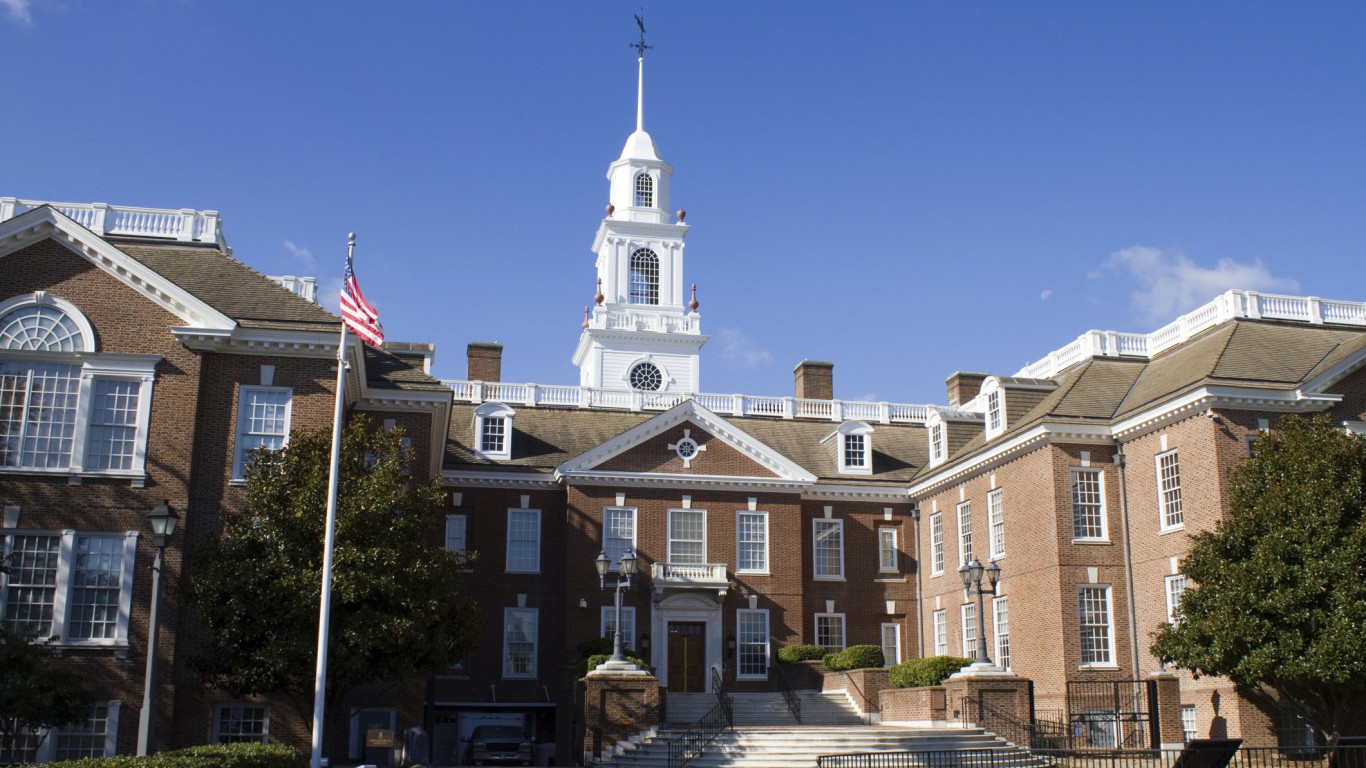
12. Delaware
> Adults reporting insufficient sleep (< 7 hrs.): 37.6%
> Adults w/ frequent mental distress: 11.1% (22nd lowest)
> Adults w/ high blood pressure: 34.5% (12th highest)
> Poverty rate: 12.4% (18th lowest)
[in-text-ad-2]

11. Ohio
> Adults reporting insufficient sleep (< 7 hrs.): 37.9%
> Adults w/ frequent mental distress: 12.0% (15th highest)
> Adults w/ high blood pressure: 34.3% (13th highest)
> Poverty rate: 14.8% (22nd highest)

10. West Virginia
> Adults reporting insufficient sleep (< 7 hrs.): 38.4%
> Adults w/ frequent mental distress: 15.6% (the highest)
> Adults w/ high blood pressure: 42.7% (the highest)
> Poverty rate: 17.9% (7th highest)
[in-text-ad]

9. New York
> Adults reporting insufficient sleep (< 7 hrs.): 38.4%
> Adults w/ frequent mental distress: 11.5% (22nd highest)
> Adults w/ high blood pressure: 29.3% (9th lowest)
> Poverty rate: 15.4% (18th highest)

8. Indiana
> Adults reporting insufficient sleep (< 7 hrs.): 38.5%
> Adults w/ frequent mental distress: 12.4% (14th highest)
> Adults w/ high blood pressure: 32.4% (22nd highest)
> Poverty rate: 14.5% (25th highest)

7. South Carolina
> Adults reporting insufficient sleep (< 7 hrs.): 38.5%
> Adults w/ frequent mental distress: 13.7% (8th highest)
> Adults w/ high blood pressure: 37.8% (8th highest)
> Poverty rate: 16.6% (11th highest)
[in-text-ad-2]

6. Michigan
> Adults reporting insufficient sleep (< 7 hrs.): 38.7%
> Adults w/ frequent mental distress: 11.9% (16th highest)
> Adults w/ high blood pressure: 33.1% (18th highest)
> Poverty rate: 15.8% (15th highest)
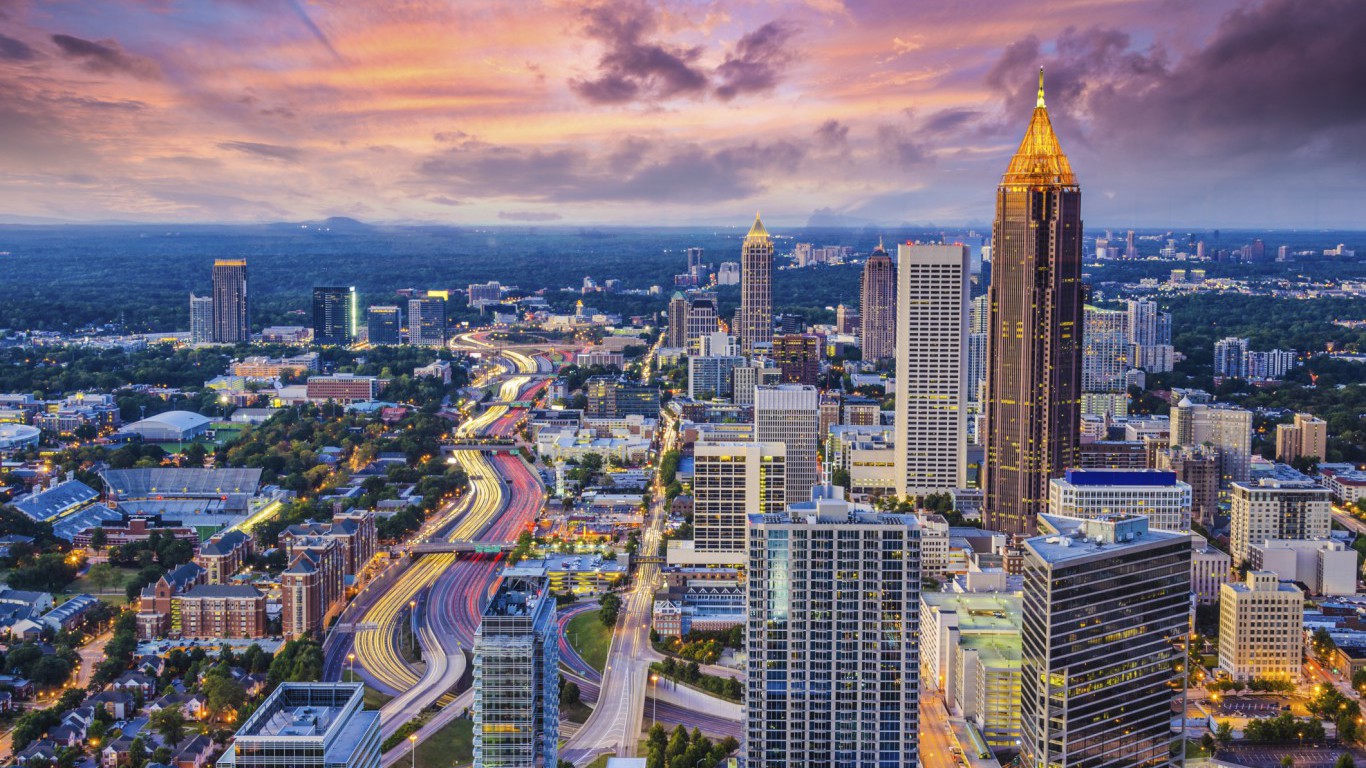
5. Georgia
> Adults reporting insufficient sleep (< 7 hrs.): 38.7%
> Adults w/ frequent mental distress: 11.2% (24th lowest)
> Adults w/ high blood pressure: 36.2% (10th highest)
> Poverty rate: 17.0% (9th highest)
[in-text-ad]

4. Alabama
> Adults reporting insufficient sleep (< 7 hrs.): 38.8%
> Adults w/ frequent mental distress: 13.9% (6th highest)
> Adults w/ high blood pressure: 40.4% (3rd highest)
> Poverty rate: 18.5% (6th highest)

3. Maryland
> Adults reporting insufficient sleep (< 7 hrs.): 38.9%
> Adults w/ frequent mental distress: 10.5% (14th lowest)
> Adults w/ high blood pressure: 32.5% (20th highest)
> Poverty rate: 9.7% (2nd lowest)
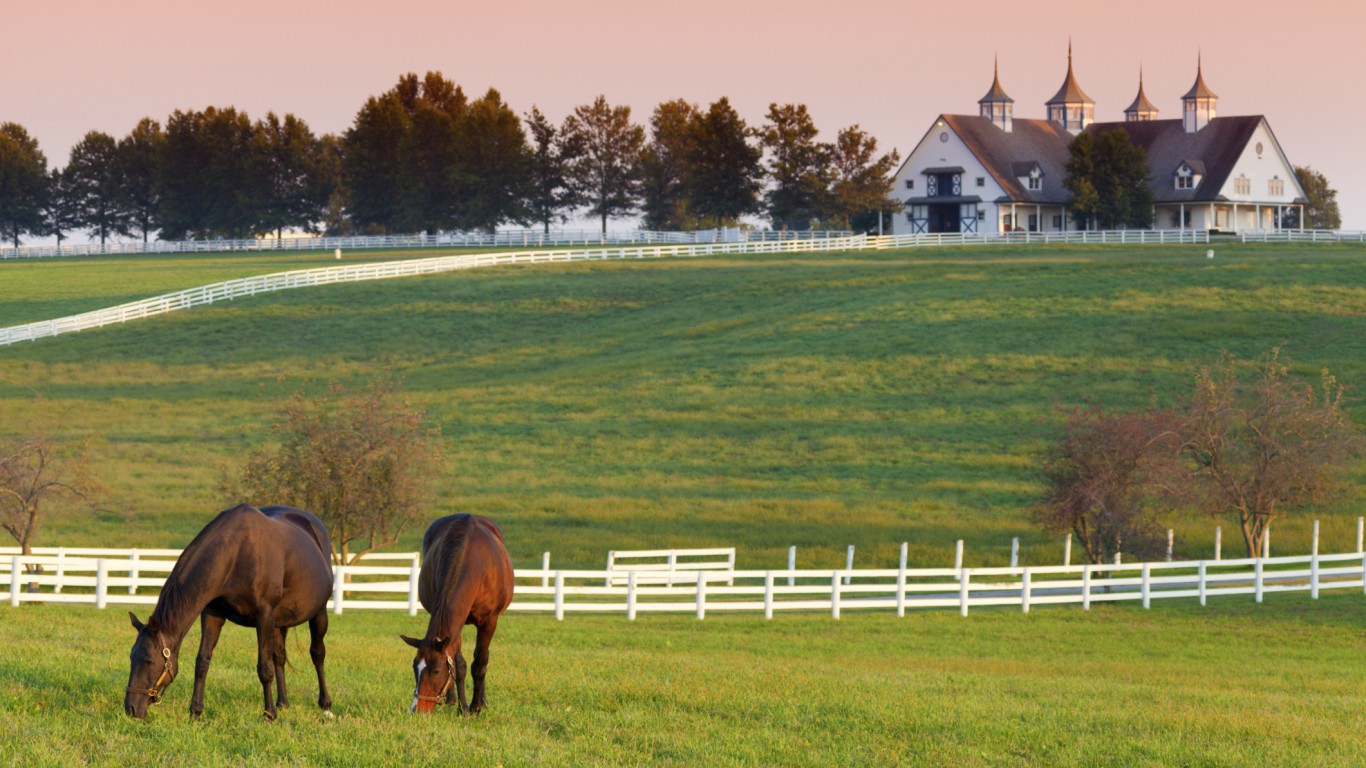
2. Kentucky
> Adults reporting insufficient sleep (< 7 hrs.): 39.7%
> Adults w/ frequent mental distress: 13.8% (7th highest)
> Adults w/ high blood pressure: 39.0% (6th highest)
> Poverty rate: 18.5% (6th highest)
[in-text-ad-2]

1. Hawaii
> Adults reporting insufficient sleep (< 7 hrs.): 43.9%
> Adults w/ frequent mental distress: 8.8% (3rd lowest)
> Adults w/ high blood pressure: 32.0% (23rd highest)
> Poverty rate: 10.6% (7th lowest)
Take Charge of Your Retirement In Just A Few Minutes (Sponsor)
Retirement planning doesn’t have to feel overwhelming. The key is finding expert guidance—and SmartAsset’s simple quiz makes it easier than ever for you to connect with a vetted financial advisor.
Here’s how it works:
- Answer a Few Simple Questions. Tell us a bit about your goals and preferences—it only takes a few minutes!
- Get Matched with Vetted Advisors Our smart tool matches you with up to three pre-screened, vetted advisors who serve your area and are held to a fiduciary standard to act in your best interests. Click here to begin
- Choose Your Fit Review their profiles, schedule an introductory call (or meet in person), and select the advisor who feel is right for you.
Why wait? Start building the retirement you’ve always dreamed of. Click here to get started today!
Thank you for reading! Have some feedback for us?
Contact the 24/7 Wall St. editorial team.
 24/7 Wall St.
24/7 Wall St.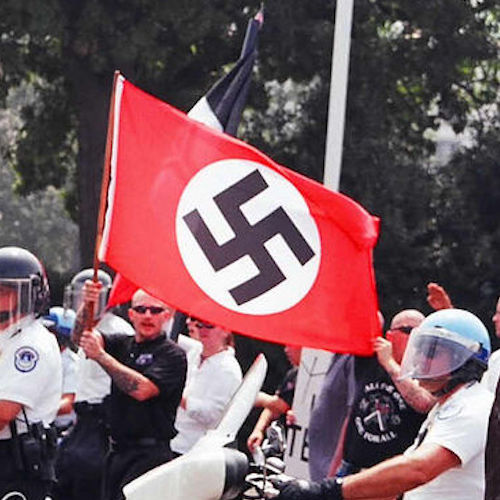 24/7 Wall St.
24/7 Wall St.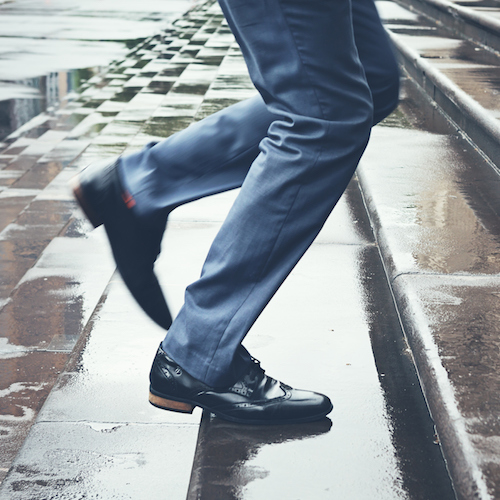 24/7 Wall St.
24/7 Wall St. 24/7 Wall St.
24/7 Wall St.
